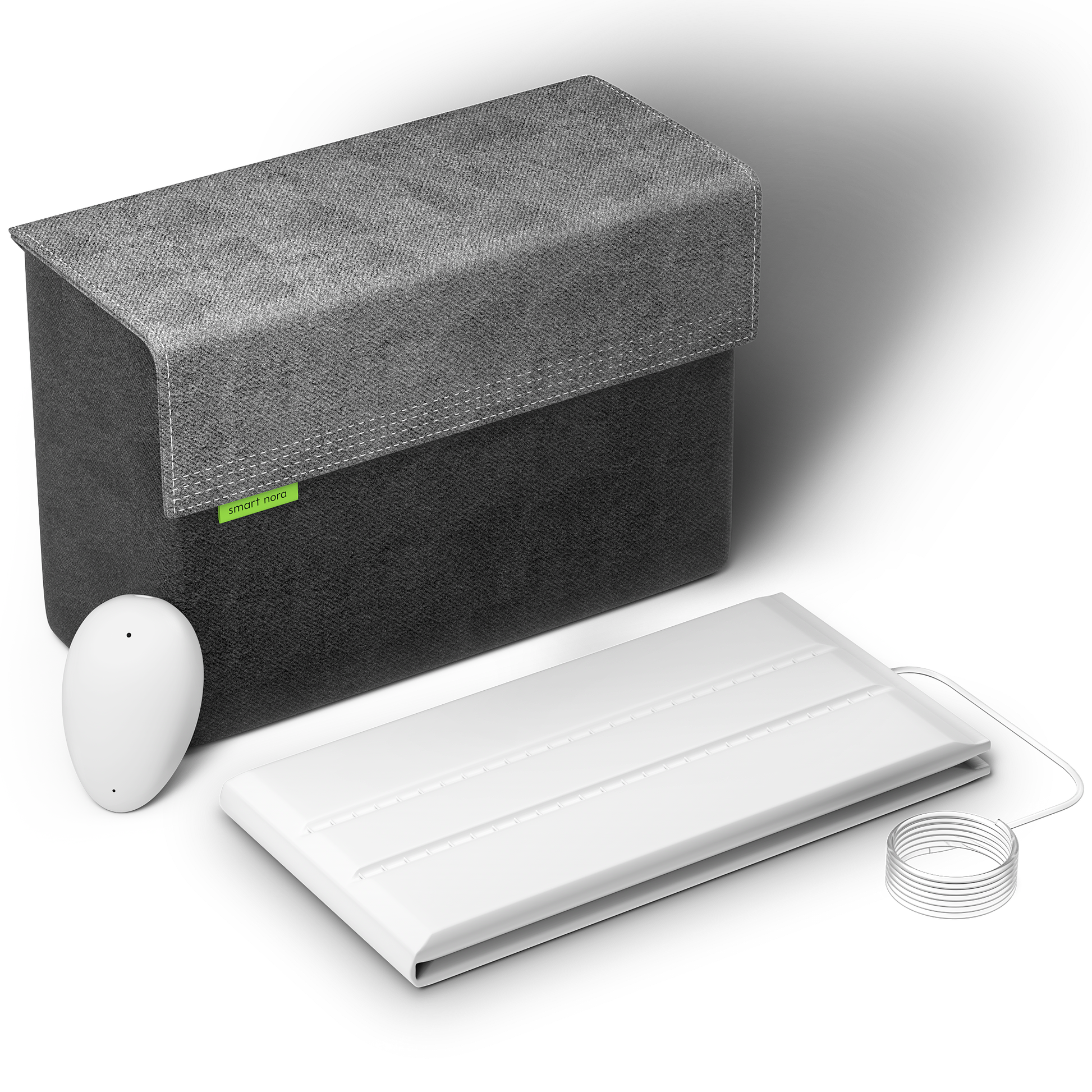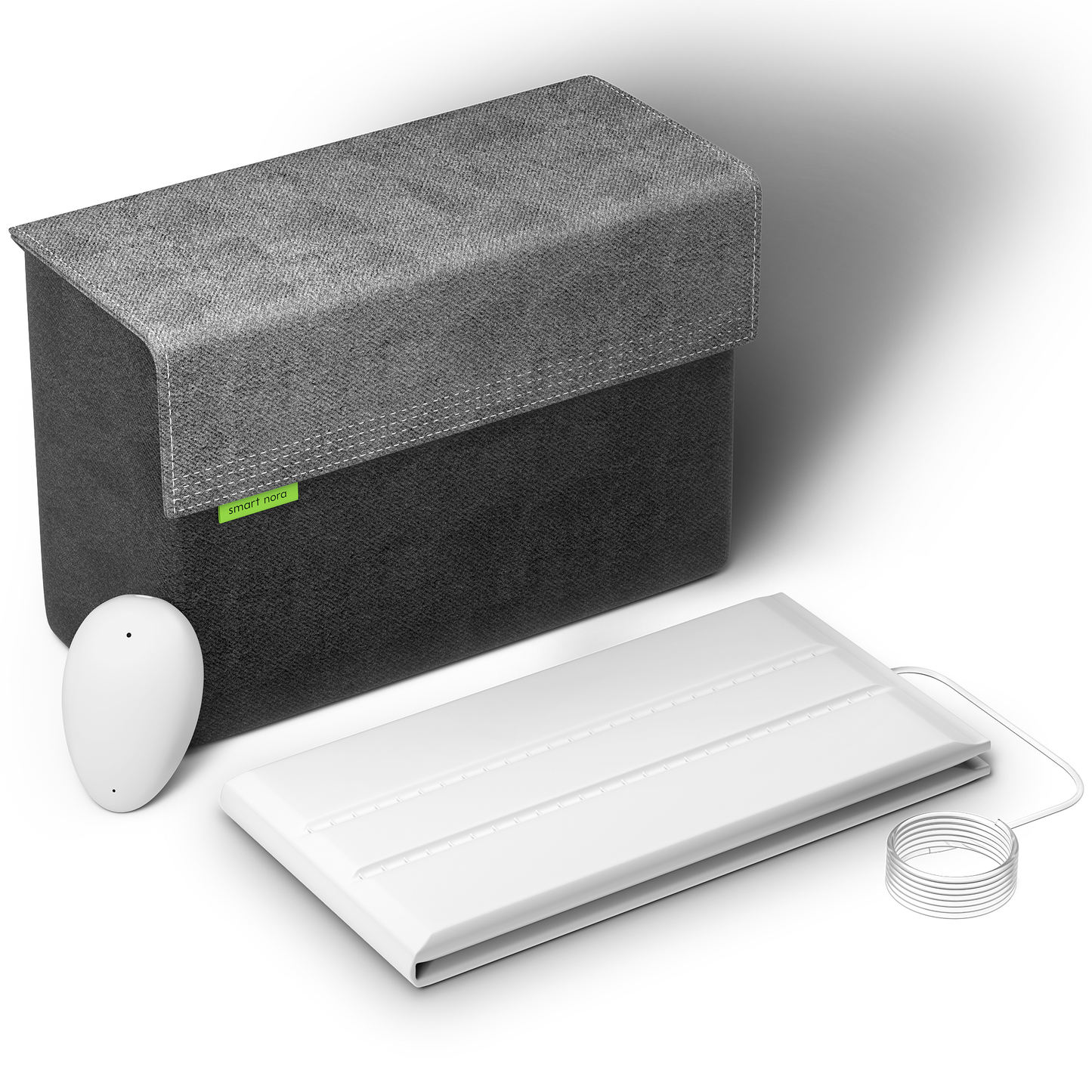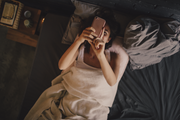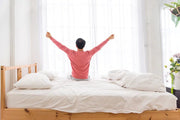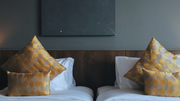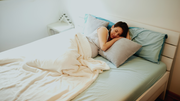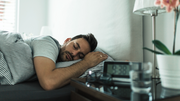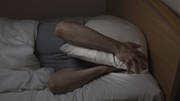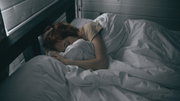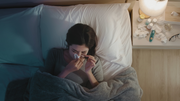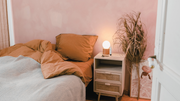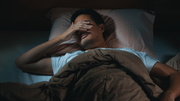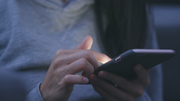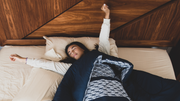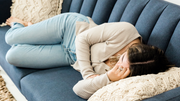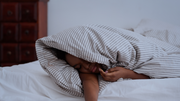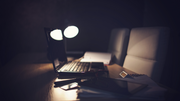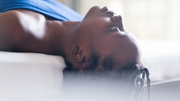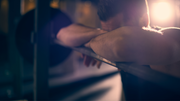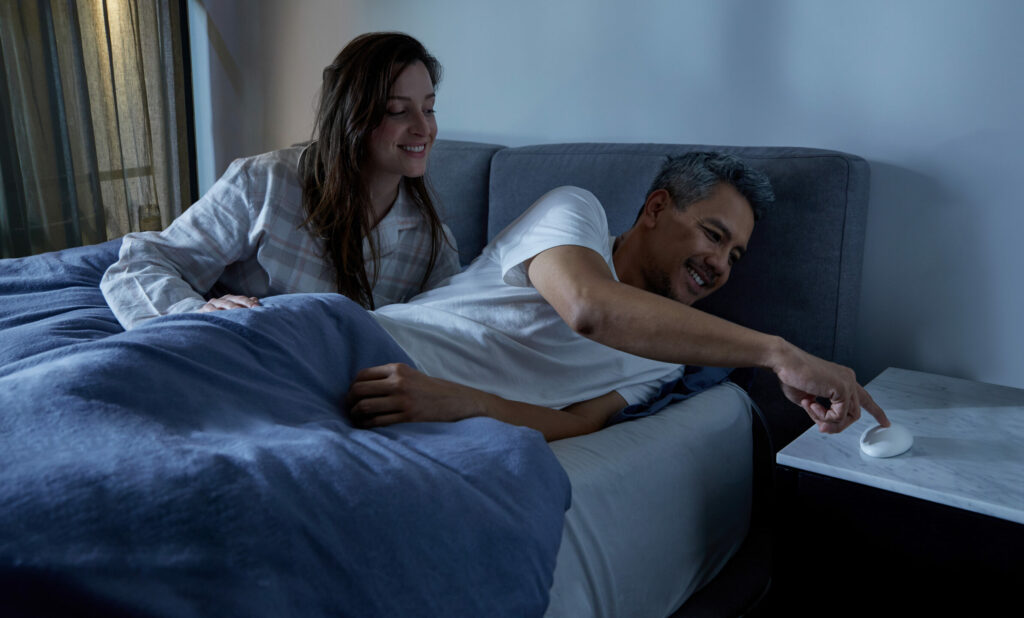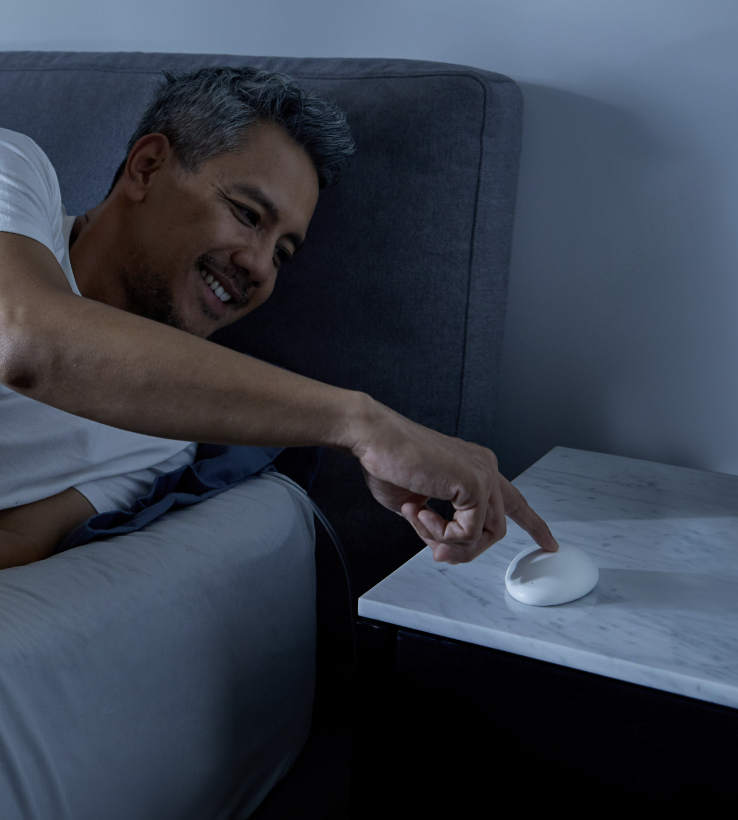“A well-spent day brings happy sleep.”
Leonardo da Vinci
These days, using technology is unavoidable, and so is the knowledge that the devices that make our lives easier can also make falling asleep harder. Don’t worry—we’re not going to tell you to throw out your phone for the sake of a solid eight hours. However, if you have trouble falling asleep or staying asleep and you think your devices might be to blame, there are steps you can take to minimize their impact on sleep. Even better, we’ve got a few tips on how tech can help you get a better night’s rest.
How Your Phone, iPad, or Computer Is Making It Harder For You to Sleep
Smartphones, laptops, and other devices have made it possible to stay busy from the moment you get up in the morning until your head hits the pillow. Is that a good thing? Depends. While on the one hand, it’s great to be able to stay connected with friends and family and be productive at any hour, the constant presence of your devices could be making it harder for you to fall asleep and shortening how many hours of quality rest you’re getting.
Why Is Technology Making It Harder for You to Fall Asleep?
Ever stay up late to finish a podcast or check social media? Well, that’s one of the ways your phone eats into your rest schedule. Using devices, especially in bed, tends to delay the time when you actually shut your eyes for the night, reducing sleep duration. What’s more, even after you turn off the screen, it’s still affecting your brain. Technology stimulates your mind, making it harder to fall asleep hours after you’ve determined to get some shut-eye.

Additionally, the blue light emitted by many devices disrupts your body’s natural production of melatonin, the hormone that tells your brain it’s time to go to sleep. Eventually, this can throw off your circadian rhythm and make it difficult to drift off even when you haven’t checked in online in a while. Lastly, it goes without saying that having a ringing phone or a blinking screen on your night table is going to interrupt precious hours of much-needed rest.
Luckily, with just a few simple changes, you can still get the most out of your tech sidekicks while enjoying a peaceful, undisturbed night’s sleep. Here’s how.
6 Simple Changes To Your Devices That Can Help You Sleep Better
Ok, so you want deep quality sleep at night, but your devices are getting in the way. Apart from getting rid of your phone or computer completely, what can you do to prevent your devices from interfering with your sleep? These are some healthy changes you can make to your devices and habits to make better sleep possible.
- Reduce your screen time during the day and at night.
Excessive screen time at night has been shown to have effects like shorter sleep duration and having a harder time falling and staying asleep. Not only that, but the more time you spend on your devices during the day has an impact as well. Reducing your screen time where possible is a good start toward reclaiming a solid eight hours.

- Establish a relaxing bedtime routine.
What you do leading up to sleep can make all the difference. For the deepest and most restful sleep, it’s recommended that you start to wind down at least an hour before bedtime. That means putting away all your electronic devices while you get ready for bed and doing something restful instead once you settle in, like reading a book. Quiet activities, silence, and dimmer lights are all signals that tell your body it’s close to bedtime. If you do need to use your devices closer to bedtime, follow the other suggestions below to optimize them for sleep.
- Make your bedroom screen-free.
Leaving devices behind when you enter your bedroom is a sure way to make it a calmer, more relaxing space. Even if you put your cell phone or other devices into silent mode, having them in the bedroom creates the temptation to look at them if you wake up during the night, potentially thwarting your ability to fall back asleep. Consider removing devices from the room, and using a traditional alarm clock to wake up instead of using your phone alarm.

- Dim the lights.
Our brains are so sensitive that even artificial light can make a dent in melatonin production. Adding dimmer switches to your overhead bedroom lights, or using softer bedside lamps at night will reduce the illumination and help you drift off when it’s time to sleep.
- Switch to nighttime mode.
Most cell phones, tablets, and other portable electronic devices are equipped with “nighttime mode” though many of us forget to use it. It’s a mode that reduces blue light, making the screen easier on the eyes right before bed. You can set it to come on automatically, but unless the lights in your bedroom are dim, you might want to set a reminder instead to turn it on manually.
- Set them to Do Not Disturb.
If you do have devices in the bedroom for any reason, at the very least you can set them to Do Not Disturb so you aren’t awakened by alerts, alarms, phone calls, or other disturbances. In Do Not Disturb mode, most electronics won’t even light up the screen when a notification comes through, preserving the peace of your bedroom throughout the night.
How to Use Tech and Your Devices to Get a Better Night’s Sleep
With all the amazing things we can do with our devices these days, isn’t improving your sleep habits one of them? The answer is yes, you can use the power of technology to sleep better. Here are some great tech finds, apps, and other handy devices to help you fall asleep more easily and get a better, deeper night’s sleep.
An app that tells you how well you’ve been sleeping.
Before you can fix your sleep pattern, it helps to know what it is. An app like SleepCycle tracks when you fall asleep, how often you wake up in the night, and if you snore—it can even tell how deeply you’re sleeping. How does it do this? By analyzing your breathing. It can even make suggestions for when you should consider it bedtime and when you should set your alarm.
Apps that help you fall asleep.
Thunderstorm sounds, guided meditation, peaceful music—there are dozens, maybe hundreds, of apps these days that deliver the ultimate in calm to help you drift off at the end of a stressful day. You may need to try a few before you find the one that works for you.

Audiobooks to help you fall asleep.
Remember how easy it was to fall asleep as a kid when someone read you a story? Now, you can replicate that experience with an app. We recommend cozy mysteries and history books; downloading anything too exciting and you risk staying up all night to hear how the story ends.

Headphones you can wear while sleeping.
If you use an app to help you sleep and you share a bed with a partner then you’ll probably find that headphones are necessary. Some people have no problem falling asleep wearing normal headsets or earbuds. If that’s not you, you can now find headphones in a soft headband version that lets you rest on your back, side, or stomach comfortably and still listen to your heart’s content.
Lights that let your body know it’s time to go to sleep.
Light plays a big part in how your body and brain know that it’s time to go to sleep. To that end, you can play with the illumination in your bedroom to mimic the setting sun or cast a mellow glow before bedtime. Sold as either attractive bedside units or bulbs you can use in any light socket, this is an especially great option if your circadian rhythm needs retuning.

Glasses to block the wrong kind of light.
Speaking of light, the blue light emitted from your phone, computer, and TV screens makes it harder to sleep. Even e-readers emit a small amount of blue light. One way to reduce blue light’s effect on sleep is to slip on a pair of blue-light-blocking glasses. Wear the shades a few hours before bed, or even all day (especially if you have eye strain from using a computer for work), and you’ll probably find it’s a lot easier to get to sleep at night.
A device to help you stop snoring.
If you snore, you probably aren’t getting a good night’s rest—and neither is your partner. Smart Nora can help you stop snoring, leading to deeper, undisturbed sleep for both you and your significant other. Sleek and discreet, the device slides into your favourite pillow and halts snoring without waking you up so you and your partner can sleep better, together. Discover a new way to stop snoring, enjoy higher quality sleep, and wake up energized and refreshed.
An air purifier for better, cleaner rest.
Especially if you’re an allergy sufferer, putting an air purifier in your bedroom could help you breathe easier, and therefore sleep sounder. Air purifiers come in a range of functionality and prices, but even a basic model will make a noticeable difference.

Smart bedding to help you sleep comfortably.
Technology has improved even the blankets on our beds to help us sleep better. If you run hot and cold at night, try a duvet with an adjustable temperature, or a mattress that stays cool in the summer but gets toasty warm in winter. Sometimes, all it takes to improve your sleep quality is a better pillow. Additionally, a lot of people have had success finding deeper sleep with the help of a weighted blanket.
Upgrade Your Sleep with Smart Nora.
We hope you’ve found a few suggestions above that will significantly improve your sleep and have you waking up energized and refreshed. If you’ve found that it’s snoring that’s costing you or your partner a good night’s rest, consider upgrading your bedroom with Smart Nora. It’s a discreet and effective way to stop snoring, works for all kinds of sleepers, and slips into your favourite pillow. Speak to one of our sleep coaches today if you want to know more.







